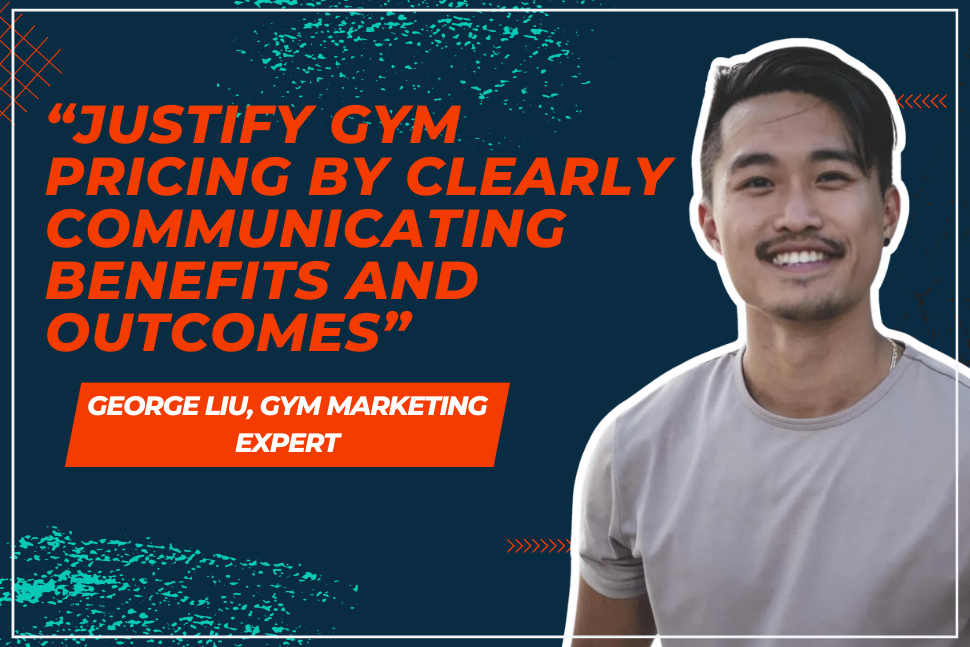Our hero today is Ben Ludwig, head of growth at CrosspointNow Network and Subject Matter Expert in Sales for Fitness Revolution. He also sits on Advisory Board for the International Strength Training Organization and consults for the F45 Training franchise.
In this episode, Ben reveals the management secrets that help you adapt your business to hard times and properly lead your employees through any trials. This includes how to put together effective training cadences so that your workers are always learning and always deepening their skills.
Define Core Values and Create Systems
The foundation of robust management during hard times begins with establishing core values and systems. Your gym’s core values should resonate through all aspects of your business, providing an anchor in stormy seas.
Once these are ascertained, you need to systemize operations around those values, ensuring consistent, quality service, and predictable outcomes, even when faced with the unexpected.
Build a Culture Through Hiring
Hiring in alignment with your core values can cement the culture you want to establish within your gym. The mantra of “hire slow, fire fast” may seem counterintuitive but ensures that you are onboarding individuals who complement your business ethos and are more likely to stay committed during tough times.
Remember, a team that shares common values is more apt to weather storms together.
The Role of Training and Staff Development
Training should not only be reactive but proactively designed around your gym’s economic drivers. Be it retention strategies, sales techniques, or customer service excellence, your training programs must be geared towards enhancing these critical areas. Further, the concept of ongoing learning and growth must be embedded within your company culture.
Incorporate Leadership Training
Integrating leadership training into your regimen is vital. Encourage your management team to partake in book studies or attend seminars that focus on leadership development. This not only prepares your team for their individual roles but also fosters a collective growth mindset that can elevate your entire organization.
Communication and Support
In times of difficulty, communication is key. Your team should never feel like they’re navigating the waters alone. Open lines of communication between you and your employees can prevent misunderstandings and foster a supportive atmosphere.
Moreover, fully understanding your team’s needs and aspirations can allow you to offer personalized support that drives engagement and loyalty.
Identify and Prepare for Hard Situations
Acknowledging that hard times are not an ‘if’ but a ‘when’ scenario allows you to be better poised to tackle them head-on. Do not shy away from addressing complex issues with staff members or dealing with customer service challenges. By confronting these issues assertively and with a prepared plan, you’ll be apt to turn problems into opportunities.
Positive Attitudes are Critical
Above all, maintaining a positive attitude and nurturing the same in your team can be the distinguishing factor in how successfully you manage through rough patches. A team that sees obstacles as opportunities for growth will remain inspired and motivated, regardless of external pressures.
Economic Downturns and External Pressures
External pressures such as economic downturns require a robust plan of action. Build a financial buffer, diversify your income streams, and keep a tight rein on your budget.
Stay abreast of market trends and adapt your offerings to meet shifting consumer demands. It’s about having the foresight and agility to pivot when external forces threaten your business.
Practical Steps Toward Preparedness
To fully embrace preparedness for tough times, you need to commit to a few practical steps:
- Own Your Own Development:
Dedicate time for personal growth and learning to inspire the same in your team. Leading by example will naturally attract like-minded individuals. - Invest In Getting to Know Your Team:
Understanding the unique drivers and stressors of your team members will allow you to lead more effectively and compassionately. - Implement Regular Cadences:
Establish regular training sessions that are tailored to your gym’s specific needs though never underestimate the power of nurturing strategic thinking. Regular feedback sessions should be structured to anticipate and welcome rather than surprise and intimidate. - Develop Internally:
Aim for promotions to be filled internally. This underscores the importance of ongoing staff development and retention, essential during challenging times.
Final Thoughts on Leadership
True leadership shines in times of turmoil. By sharpening your focus on core values, systems, training, communication, and a positive mindset, you position your gym to not just survive but thrive in adversity. Encourage open dialogue, provide continuous learning opportunities, and most importantly, offer guidance and support at every twist and turn.
As you implement these strategies, keep in mind that management itself is a journey. Each obstacle presents an opportunity to learn and refine your approach. Embrace the challenges, and watch as your gym— and your team—become stronger, more cohesive, and more resilient than ever before.
 39 Martial Arts Statistics To Know in 2022
39 Martial Arts Statistics To Know in 2022



